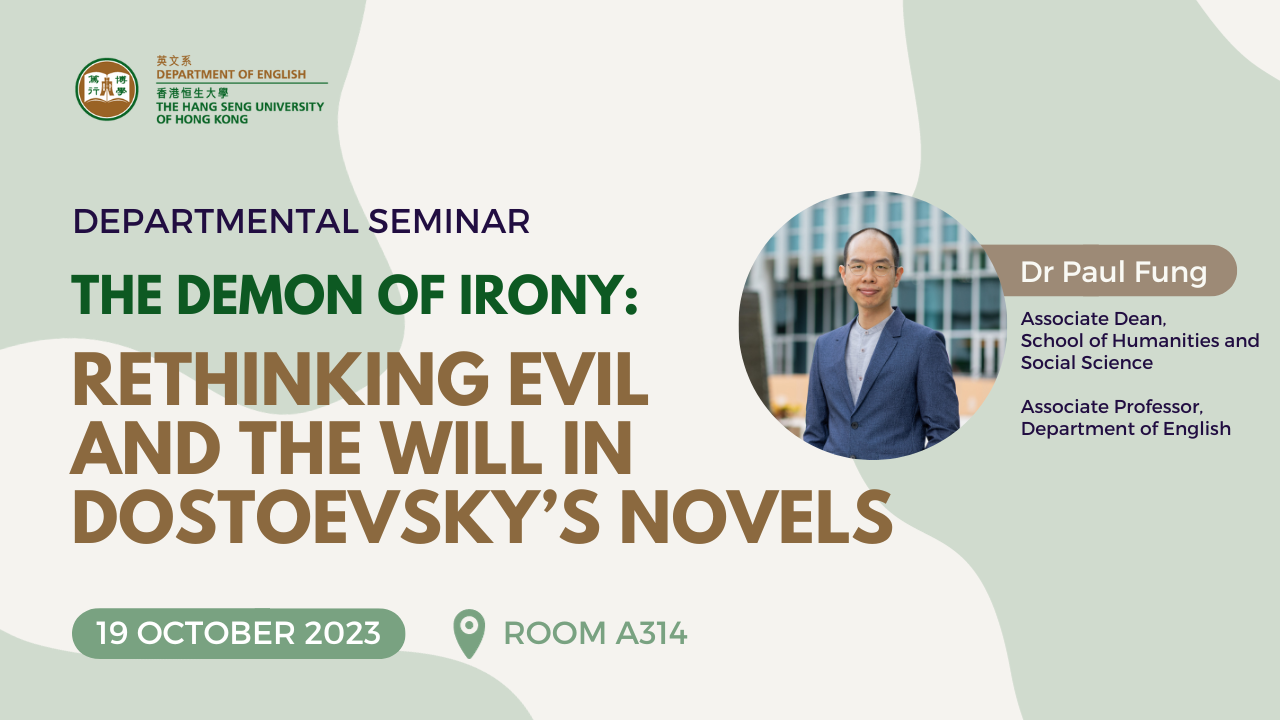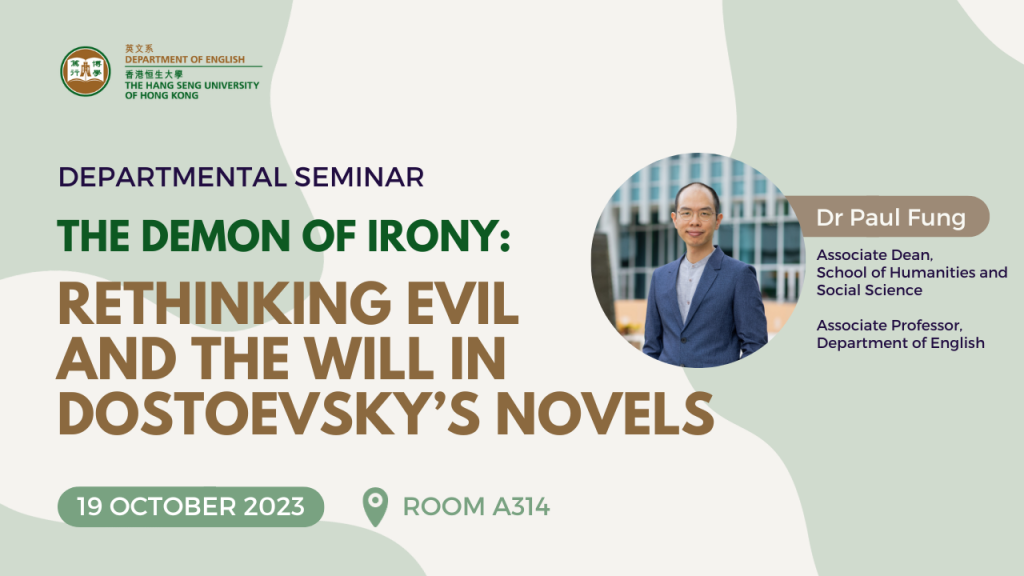

The English Department cordially invites you to join our departmental seminar, The Demon of Irony: Rethinking Evil and the Will in Dostoevsky’s Novels, to be organized on 19 October 2023 (Thursday).
Date: 19 October 2023 (Thursday)
Time: 2:30pm – 3:30pm
Venue: Room A314, S H Ho Academic Building
Speaker: Dr Paul Fung, Associate Dean of School of Humanities and Social Science and Associate Professor of Department of English
Registration: Complete this online form to reserve a seat. Available on a first-come-first-served basis.
Remarks: 1 iGPS unit will be awarded to undergraduate students who attend the seminar
Abstract
In her book New Demons: Rethinking Power and Evil Today (2015), the Italian philosopher Simona Forti argues that Dostoevsky’s Demons paves a new direction in understanding the meanings of evil. According to Forti, Immanuel Kant places evil as a category outside of the concept of freedom. A person does not will for evil for the sake of evil. Rather, he or she commits evil only when his reason is corrupted. For Kant, doing evil is the result of someone surrendering themselves to the call of sensual inclinations. It is a sign of a failure in maintaining one’s moral reasoning. Schelling adopts a different approach. He understands evil together with freedom and God. God is not an abstract idea only associated with the good. God is conceived as a dynamic unity of forces which are dualistic in nature. The forces can be understood as the co-existence of good and evil, order and disorder, universal and particular.
Man is now placed on a threshold (Scheidepunkt) at which he can choose for the principle of good or evil without the restriction of reason. The way Schelling expresses the unboundedness of man in this situation is highly comparable to the description of the contemplator in Brothers Karamazov (1.3.6). The contemplator in Kramskoy’s painting can ‘unexpectedly throw up everything and go off to Jerusalem as a wandering pilgrim, or perhaps he might suddenly set fire to his native village, or perhaps both’ (Ignat Avsey’s translation). Evil is understood here as a potential expression of freedom. In Demons, Stavrogin marries a disabled girl for the sake of doing good. But in the next moment, he harasses another girl so that she will end up killing herself. Reading the novel in light of Schelling, we may say that it is not because Stavrogin is ‘evil-minded’ and therefore he decided to harm the girl. Rather, it is because he wants to prove his freedom and therefore make the choice in committing the evil deed.
For Forti, those who will for evil also persist in particularizing. The will to evil ‘is a refusal to open to Other than Self; it is the rejection of love, and the consequent anarchical choice for the undisputed rule of the creaturely’ (28). My contention is that this characterization of evil also applies to the concept of irony. By irony I refer to an incessant state of self-reflexivity in which the totality of life cannot be attained. The Dostoevsky hero continually negates his own propositions (Underground Man). They commit morally contradictory actions (Raskolnikov and Stavrogin). And he would not let himself be appropriated into a bigger community (Kirilov). It appears that by committing an ironic life the heroes are looking for the same thing as in committing evil: the state of absolute freedom. This paper will show that evil is highly similar to irony as a mode of existence which is driven towards disorder and the particulars. Such mode of existence is not only found in Demons – which for Forti is the ultimate example of radical evil – but also in other major novels, including Notes from Underground, Crime and Punishment, The Idiot and Brothers Karamazov.
Bio
Paul Fung is the Associate Dean of School of Humanities and Social Science and an Associate Professor at the Department of English. His research areas include Fyodor Dostoevsky, irony, urban literary studies, and the Taiwanese director Edward Yang.
For enquiries, please feel free to contact us at eng@hsu.edu.hk.


